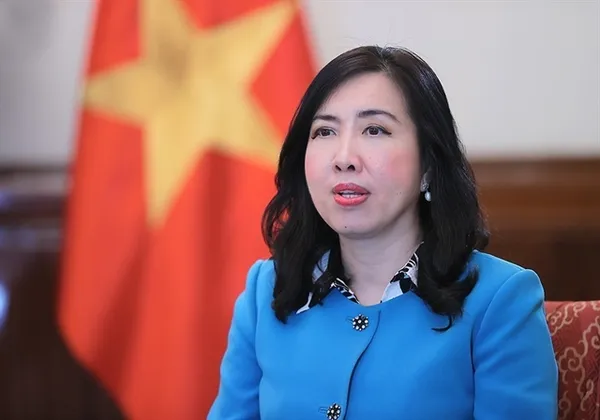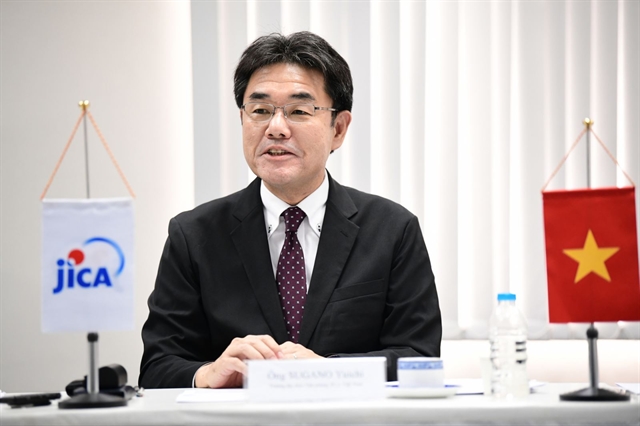 Opinion
Opinion

 |
| People flocking to see the first metro line in Hồ Chí Minh City. VNA/VNS Photos Quốc Khánh |
HCM City's Metro Line 1 (Bến Thành - Suối Tiên) on December 22 officially commenced commercial operations after 17 years of construction. Vietnam News Agency spoke with Sugano Yuichi, Chief Representative of the Japan International Cooperation Agency (JICA) Việt Nam, to gain insights into the implementation and operation of this metro line.
Before commencing commercial operations, what preparations were made to ensure Metro Line 1 delivers the best service quality to passengers?
JICA is very pleased and proud that Metro Line 1 is now officially operational. I would like to extend my deep gratitude to all stakeholders whose tremendous efforts contributed to the success of this project. With the metro now in operation, residents and visitors to HCM City will experience a modern, punctual and safe mode of transport. JICA hopes that Metro Line 1 will improve people's lives by reducing traffic congestion and air pollution while strengthening Việt Nam-Japan relations.
After completing construction and installation, all systems underwent integrated system testing and numerous trial runs. Train drivers and station staff received thorough practical training. HCM City Urban Railway Company No. 1 (HURC1) has also developed a comprehensive operational system, manuals and enhanced staff capabilities to meet operational requirements.
The final procedures before commercial operation included fire safety certification, environmental certification, system safety certification and State Inspection Council approval.
What are the highlights of this metro line in terms of technology, construction materials and workers compared to previous projects in Japan? How has Japanese technology been transferred to Vietnamese partners?
The project's success is largely attributed to Japanese technology and expertise. For instance, the trains are designed for smooth operation with minimal vibration and high energy efficiency, and are equipped with comprehensive safety features. Advanced construction technologies were applied, especially in the busy area around the Municipal Theatre. Tunnels and stations were built using Tunnel Boring Machine (TBM) technology to minimise the impact on surrounding structures.
Japanese construction companies collaborated with Vietnamese partners during the implementation. As a result, advanced technologies and professional construction management techniques were transferred to Vietnamese counterparts.
Beyond tangible infrastructure, Japan's operational and maintenance experience has been transferred to HURC1, the entity responsible for operating and maintaining Metro Line 1 since its establishment in 2015.
 |
| Sugano Yuichi, Chief Representative of the Japan International Cooperation Agency (JICA) Việt Nam Office. |
How will the project be managed and operated commercially? What criteria will be used to evaluate its impact and effectiveness?
HURC1 will be responsible for operations and maintenance. Since 2011, JICA has provided technical support to establish HURC1, and since 2017, we have continued to enhance the company's capabilities. Together with Japanese experts, JICA has supported HURC1 in developing essential internal rules, regulations and business plans to encourage a shift from private vehicles to public transportation.
Japanese experts have also assisted HURC1 in conducting multiple trial runs under various scenarios to prepare for commercial operations. Currently, HURC1 and MAUR plan to hire experienced professionals to support operations and maintenance during the initial phase.
Could you share more details about the commercial operation plan for Metro Line 1 in the early phase, particularly its integration with other public transport modes? What emergency response scenarios and solutions have been put in place to encourage public use?
The operational plan has been carefully studied and announced by HCM City to meet residents' needs. For integration with other public transport modes, pedestrian bridges have been built for safe and convenient access to stations, parking lots have been arranged at certain stations, and additional bus routes have been established for better connectivity.
For emergency scenarios, HURC1 rehearsed 47 scenarios during trial runs to prepare for commercial operations. These range from routine operations to emergency situations such as fires, explosions, power outages, flooding and signal loss at various locations along the line.
To encourage public use of Metro Line 1, HCM City will offer free tickets during the first month of operation. The city has also approved discounted fares for special groups, including revolution contributors, senior citizens, people with disabilities, students and children.
With technical cooperation from JICA, HURC1 has organised workshops and discussions to promote the benefits of transitioning from private to public transportation. These efforts include disseminating information about stations, train schedules, ticket purchasing and routes. I hope that after commercial operations begin, Metro Line 1 will become an integral part of city life. — VNS




